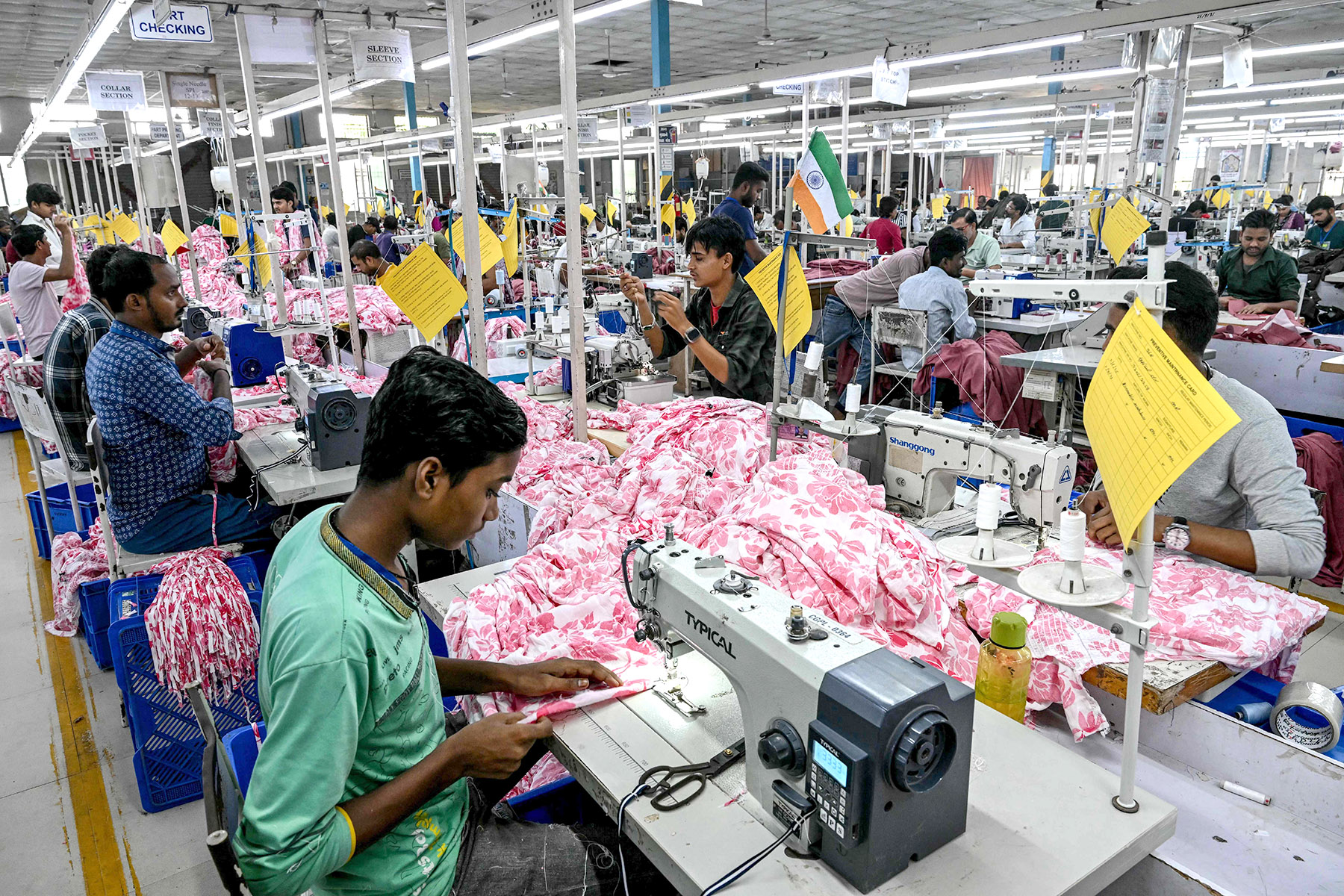Washington move goes against spirit of bilateral trade accord, experts say

India, mounting a sharp counterattack to criticism from the White House over its import of Russian crude oil, has called the US stance unjustified and unreasonable, and said it would take all necessary measures to protect its national interests and economic security.
“It is revealing that the very nations criticizing India are themselves indulging in trade with Russia,” India’s Ministry of External Affairs said in a statement late on Aug 4, in response to US President Donald Trump’s warning to raise tariffs on India “substantially”.
The ministry said the EU in 2024 had a bilateral trade of 67.5 billion euros ($78 billion) in goods with Russia. “European imports of LNG in 2024, in fact, reached a record 16.5 million tons, surpassing the last record of 15.21 million tons in 2022,” the statement said.
“Where the United States is concerned, it continues to import from Russia uranium hexafluoride for its nuclear industry, palladium for its EV industry, fertilizers as well as chemicals,” the ministry noted.
India began importing oil from Russia only after “traditional supplies” were diverted to Europe following the outbreak of the Russia-Ukraine conflict in 2022, the ministry said. “The United States, at that time, actively encouraged such imports by India for strengthening global energy markets’ stability,” the statement said.
Given this background, targeting India is “unjustified and unreasonable”, the ministry stated, and like any major economy, India will take all necessary measures to safeguard its national interests and economic security.
In response to Trump’s tariff threats, Indian Prime Minister Narendra Modi struck a defiant tone, urging the nation to buy local goods as his administration signaled it would continue buying Russian oil.
At a rally in the state of Uttar Pradesh on Aug 2, Modi said, “Now, whatever we buy, there should be only one scale: we will buy those things which have been made by the sweat of an Indian.”
Bilateral trade between New Delhi and Moscow reached a record $68.7 billion for the fiscal year ended March 2025, compared to the pre-pandemic trade of $10.1 billion, according to data from the Indian embassy in Moscow. Bloomberg reported that at least four tankers discharged millions of barrels of Russian crude oil at Indian refineries over the weekend.
Strong India-Russia relations are a historical fact, and the US cannot act like a global hegemon, going about imposing its writ on any country, not least a vast country like India, said Biswajit Dhar, a former professor at the Centre for Economic Studies and Planning at Jawaharlal Nehru University, New Delhi.
Trump on Aug 6 signed an executive order imposing an additional 25-percent tariff on imports from India in response to the country’s purchases of Russian oil, according to a White House statement.
The order, effective 21 days after the announcement, will bring the combined tariffs imposed by the United States on Indian goods to 50 percent.
In a sharp reaction, Indian Ministry of External Affairs spokesman Randhir Jaiswal said that the US move was “extremely unfortunate”. “We reiterate that these actions are unfair, unjustified and unreasonable. India will take all actions necessary to protect its national interests,” he said in a statement on Aug 6.
India does not have much option but to continue oil imports from Russia, said Amit K. Biswas, a professor in the Department of Economics and Politics at Visva-Bharati University in Santiniketan, West Bengal.
The US is India’s top trading partner, with a $186 billion bilateral trade in 2024-25, while a new goal for bilateral trade targets $500 billion by 2030, according to the Indian embassy in Washington.
Swaran Singh, a professor of international relations at Jawaharlal Nehru University, said there has been no clarity on “additional penalty”, though Trump continued to repeat that threat against India.
The writer is a freelance journalist for China Daily.
Xu Weiwei in Hong Kong contributed to this story.


